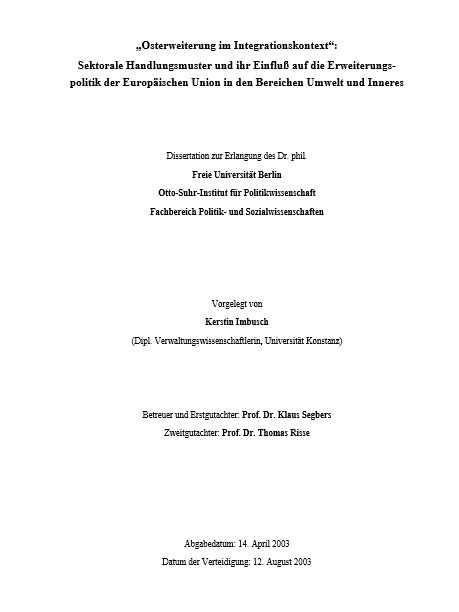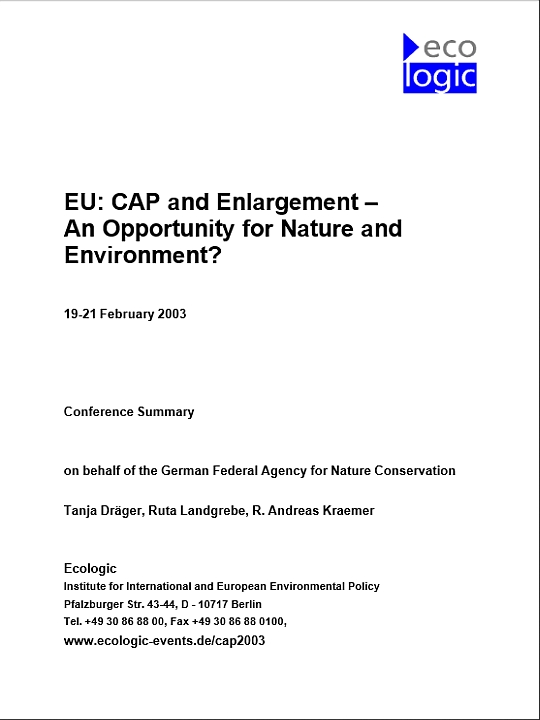
Osterweiterung im Integrationskontext
Sektorale Handlungsmuster und ihr Einfluß auf die Erweiterungs- politik der Europäischen Union in den Bereichen Umwelt und Inneres
- Publication
- Citation
Imbusch, Kerstin 2004: Osterweiterung im Integrationskontext. Sektorale Handlungsmuster und ihr Einfluß auf die Erweiterungs- politik der Europäischen Union in den Bereichen Umwelt und Inneres. PhD thesis, Freie Universität Berlin, Berlin, 267 pp.
The dissertation of Ecologic Alumna Kerstin Imbusch deals with policy-making in EU's recent Eastern Enlargement. By comparing the enlargement processes of environmental policy and Home affairs, it shows that EU-actors selected sector-specific approaches to deal with this challenge.
The difference in managing enlargement with regard to key actors, key instruments and timing is the dependent variable. It is explained by help of an historical-institutionalist approach that takes sociological arguments serious. According to this, formal and informal rules (institutions) fulfil different functions for political action: They influence access to a particular policy field, they affect formal and material agenda-setting power, and they provide for the development of particular policy-styles. In this way, they contribute decisively to the establishment of sector-specific patterns of action (logics of action). These institutionally rooted patterns (logics) are the explanatory variable. The analysis of the two selected policy fields confirms the assumption that the sector-specific approaches to Eastern enlargement can be explained largely by existing patterns of action. In this sense, enlargement is a path dependent process. In environmental policy, the relevant actors aimed at feeding policy-specific interests into the overall enlargement strategy and collaborating closely with enlargement actors, thus applying traditional logics of supranational action. In Home affairs, the relevant actors preferred parallel approaches: On the one hand, introducing their interests into the overall strategy and maximising their power in this process; on the other hand, creating separate arenas of action that allowed for more independence. This follows the traditional pattern of transgouvernmental action. The analysis shows that even action in an extraordinary process as Eastern Enlargement is deeply rooted in the overall integration context. New challenges are processed with existing patterns; Eastern Enlargement was managed largely sector-specific.
The PhD thesis has been published as a digital dissertation and is available for download on the website of the Free University of Berlin.







